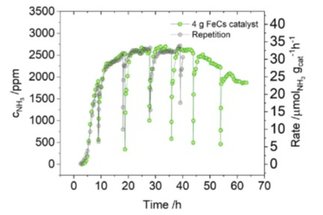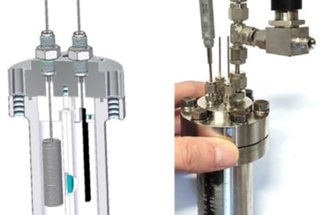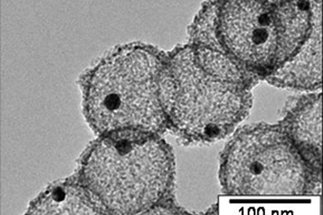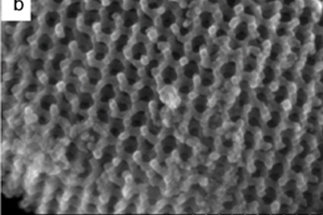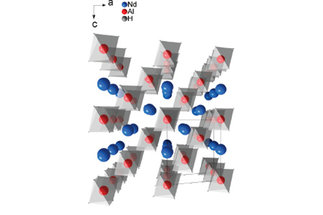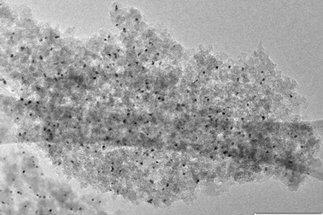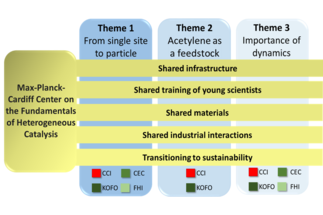Heterogeneous Catalysis
The work of the group is concentrated on the synthesis and characterization of inorganic materials with an application focus in heterogeneous catalysis. Especially important are high surface area materials with controlled porosity and nanostructured catalysts. Reactions studied include model reactions, such as CO oxidation, and energy relevant conversions, i.e. methane activation, biomass conversion, ammonia decomposition and catalyzed hydrogen storage. This research is supported by studies into the fundamental processes governing solids formation.
Research Topics:
Research Reports:
- Research Report Schüth 2017-2019 924.95 kB
- Research Report Schüth 2014-2016 1.49 MB
- Research Report Schüth 2011-2013 3.36 MB
- Research Report Schüth 2008-2010 2.05 MB
